
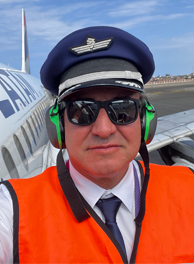
Alexander is an airline flight instructor pilot with 17 years of experience in commercial aviation and another 17 years in the military as a fighter pilot. Throughout his career, Alexander in addition to having extensive experience as a pilot, has worked in different positions in the field of aviation safety.
Alexander is a graduate of the Peruvian Air Force Officers Academy and has followed postgraduate education in business administration in Peru and strategic planning in Germany, as well as qualifications in aviation safety at CENIPA-Brazil and accident investigation at the NTSB.
Alexander is currently an A320 flight instructor and serves as Safety Manager at LATAM Airlines Perú, being in charge of the Safety Management System, as well as Aviation Security and Health Safety of the company’s employees.
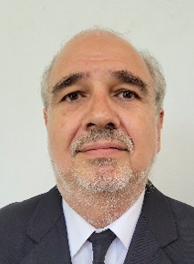
Cap. Alex is a retired airline pilot, anthropologist, researcher, and entrepreneur. He is a retired airline pilot with more than 18,000 flight hours and 38 years of experience with Aeromexico. He retired on December 2017, after having flown the DC-8, DC-9, MD-80, Boeing 767, and 787 type aircraft.
In 2008, he founded Uleadair LLC, a company dedicated to train and evaluate pilots in Aviation English using competency based-learning in an onlilne platform that stimulates verbal thinking activity in realistic simulations and live ATC controllers.
Capt. Perez-Chavez is the author of various publications such as: System Accidents and Epistemological Limitations: The Case of American Airlines’ Flight 965 in Cali, Colombia.
Capt. Perez-Chavez participated in the Human Performance Committee of the International Federation of Airline Pilots Association in “Cross-Cultural Issues in Civil Aviation Operation and Training” and was Pioneer on the design and delivery of the Crew Resource Management (CRM) program for Aeromexico.
He also has international experience as a consultant. In 2000, he collaborated with NASA on the Close Call Data Sources Review and Analysis Project, to identify and implement human factors initiatives to improve safety in the Space Shuttle Program. In 2001, Capt. Perez-Chavez participated as a research scholar under a Boeing funded initiative to establish the relationship between Culture and Flight Deck Operations at the Cognitive Science Department, USCD. In 2005, he participated in the evaluation of the status and effectiveness of CRM training in Taiwan, funded by the Taiwan Aviation Safety Council. In 2007, he performed direct observations of risk elements in the 737 cockpits (LOSA) for TAAG Airlines, Angola, Africa.
He holds a master’s degree in Anthropology from Wayne State University at Detroit, MI and an undergraduate degree in Physical Anthropology – Distinguished Graduate from La Escuela Nacional de Antropología e Historia in Mexico City.
As the director of Uleadair, his mission continues to be to improving safety in the air by helping pilots communicate efficiently and thrive professionally.
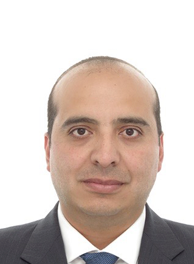
Oscar is the EBT manager at Avianca, where he coordinates a team of safety – training to deliver training standards based on data analytics. He also participates of the LOSA program implementation that is on the second year and is responsible of the Bowtie risk management methodology at the training department.
Oscar is an Airbus A320 Captain with over 17 years of professional flight experience flying Dash 8 – Fokker 100 – Airbus 320/330. Since joining Avianca on 2009, he has held numerous leadership positions in operations as specialist on dangerous goods and on training department as TRI-TRE. He is Mechatronic Engineer, postgraduate certificate in administrative aviation management and held a master’s degree in education.
Oscar resides in Bogota Colombia.
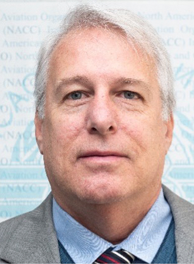
Fernando has a long career in the aviation industry, including 27 years as a Brazilian Air Force pilot. He held relevant positions in the CENIPA, up to Deputy-Chief (before retiring from B.A.F. active duty in 2009). He is an ICAO auditor in the area of aircraft accident investigation and is an ICAO Team Leader. He holds a Bachelor of Science degree in Aeronautical Sciences from the Brazilian Air Force Academy, a Bachelor of Arts degree in Law from the Catholic University of Santos, and a Master’s degree in Aviation Safety and Continuing Airworthiness from the Aeronautical Institute of Technology (ITA). He was a member of the Committee of Aviation Experts appointed by the Federal Senate to draft a new Bill on the Brazilian Aeronautical Code (2015-2016). He worked for CENIPA as a Master Accident Investigator, Legal Consultant, and project manager until January 2019. He is the Regional Officer, Technical Assistance, and focal point for Accident and Incident Investigation (AIG) in the NACC Office.
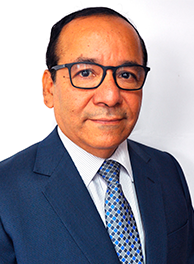
More than 40 years of experience in the aviation industry, in the fields of Management, Aviation Training, Aviation English, Train the Trainer, Course Development, Business Administration, Leadership, Long-life Learning, Higher Education and Academic and Scientific Research. Mr. Aranda holds a PhD degree in Administrative Sciences, and he has participated as Speaker at various countries of America, Europe, Asia and Africa. He is a Professor at various universities in Peru, in subjects related to Ethics, Research, Human Resources and Business Administration. He is also an ICAO Technical Cooperation Consultant, in the areas of Aviation Training and ICAO Language Proficiency. He recently participated as Editor and Translator into Spanish of the book: “Implementation Guide for Artificial Intelligence in Aviation”. He is also Co-author of the book: ”Aviation Workforce Planning: The Artificial Intelligence and Competency-Based Era”.

Patricia was born in Cochabamba in Bolivia. She has resided in Lima, Peru since 2013.
A little of my history as a woman in aviation:
My first “solo” flight was on July 16, 1998. In a Cessna 150 CP 1249. (Bolivia) That’s how my career began, obtaining private and commercial licenses.
It was not until 2004 that I was given the opportunity to apply to be a flight engineer for the 727-100-200 (with approximately 1800 hours).
Starting in 2008 as 1st officer 737 -200-300-400 (1100 hrs). Aerosur Bolivia.
Since 2013 as first officer Airbus 320 in Lima -Peru
And since 2017 as Captain Airbus A320 Lima -Peru (total flight hours 9721).
Ground and A320 simulator instructor at the CENTURY Flight Academy school since 2021.
Diploma in “Management of Organizations in the Aeronautical Sector” ESAN University. (2022)
Current president of the Peruvian association of female aviators ASPEAV.
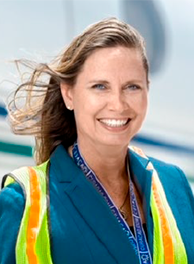
Mrs. Sereya Camille Schotborgh started her assignment as Regional Officer, Safety Implementation at the ICAO NACC Regional Office on 14 February 2021, where she is responsible to assist with the Personnel Licensing and Flight Operations assignments carried out by the Civil Aviation Authorities in the States. She has over 21-year experience total working in the Industry, at the Curacao Civil Aviation Authority and as well at the ICAO NACC regional office.
After graduating from high school, Mrs. Schotborgh started her flying career as a first-officer on the Dash-8 aircraft at the local airline in Curacao, Air ALM 1997 NV, where she flew for four years. After Air ALM 1997 NV, she worked at other aviation related companies (Catering Department at the Airport and the Air Navigation Service Provider) prior joining the Curacao Civil Aviation Authority as an Aviation Safety Inspector for Flight Operations and Personnel Licensing in 2008. Mrs. Schotborgh worked for twelve years at the Curacao Civil Aviation Authority prior joining the ICAO NACC Regional Office in February 2021.
During her years at the Curacao Civil Aviation Authority, Mrs. Schotborgh was in charge of the Licensing Department and actively participated in several certifications of airlines. Mrs. Schotborgh is a member of the team of the Universal Safety Oversight Audit Programme – Continuous Monitoring Approach (USOAP-CMA), this team is in charge of following-up the continuous monitoring surveillance in States, and has participated in audit and ICAO Coordinated validation missions (ICVM) activities.
She participates in different multidisciplinary missions of the ICAO NACC Regional Office Systemic Assistance Programme (SAP) in support to the No Country Left Behind (NCLB) campaign, in order to provide assistance to the Central American and Caribbean States and improve the Effective Implementation (EI) of the audit results in the Personnel Licensing and Flight Operations Area.
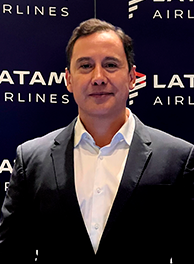
Chilean nationality, born on January 23, 1970.
Industrial Civil Engineer University of the Americas 2004.
IEDE Executive MBA 2006.
Diploma of Advanced Studies (DEA) Doctorate XV IEDE 2010.
CAP-TRI-TRE A320 Fam LATAM (2006-2020).
Head- Fleet Manager A320 LATAM (2009-2018).
CAP-TRI B787 LATAM (2020-present).
Senior Manager of Standards and Instruction at LATAM AIRLINES GROUP. (2018-present).
Anecdotes:
Flight commanding an A320 to capture a total eclipse in La Serena Chile in JUL-2019.
Flight commanding a B787 to capture a total eclipse in the Chilean Antarctic in DEC-2021.

Mr. Alejandro Mena is currently the Manager of the Central American Agency for Aeronautical Safety (ACSA) since 2020.Mr. Mena is a Maintenance Technician and an Air Transport Pilot, with over 30 years of aviation experience in different operational areas. He also, has experience as an Airline Transport Pilot Instructor within the industry.
He worked for the main Approved Maintenance Organization in Costa Rica COOPESA FAA/EASA certified Repair Station as a Maintenance Technician and Quality Control Inspector on B727, B737, B707, DC8, DC9, A320 aircrafts for over seven (7) years, then moved to GRUPO TACA AIRLINES and AVIANCA where he performed on the positions of Maintenance Quality Assurance Chief and Maintenance Manager from 1998 to 2003, then as a Operations Quality Assurance Chief and A320 Air Transport Pilot from 2003 to 2014 for the same operator.
For the last 6 years Mr. Mena has worked with ACSA as an Operations Specialists until he became the new Manager of the Agency. As an Operations Specialists he has been providing technical assistance and/or training to Civil Aviation Authorities and other aviation industries interested in operations assistance in compliance with current and updated aeronautical regulations and the application of procedures established to maintain and increase the effective implementation levels of the State in compliance with ICAO standards.
Mr. Mena holds an Aircraft Structural Repair Diploma, Aviation Mechanic Diploma, and is finishing his bachelor’s degree on Transportation Administration with Emphasis on Aerodromes. He also holds Maintenance Technician Type 1 License, FAA Aircraft/Powerplant A/P License, and Airplane Transport Pilot (ATP) Flight Instructor/Ground Instructor Captain A-320 / Captain B 737-200 License.

Marcelo Marcusso is an A32F Captain and has extensive management experience in the Flight Safety and Flight Operations areas.
His background in aviation safety includes the qualification as an Aircraft Accident Investigator by CENIPA, Safety Management System (SMS) for airlines by the University of Southern California, Operational Risk Management by IATA, and specialization in Flight Safety and Continuing Airworthiness by the Instituto Tecnológico da Aeronáutica (ITA).
He also holds an MBA in Aviation Management from Embry-Riddle, an MBA in Business Management from Fundação Getúlio Vargas and a master’s in administration also from Fundação Getúlio Vargas
In addition to his professional activities, he is currently the president of the Brazilian Commercial Aviation Safety Team – BCAST.

Liliana Yaipen, Tourism administrator by profession, is currently Corporate Safety and Security Manager at SKY Airline, a position she has held for 4 years. During her professional career, she has held different positions for more than 16 years in the airline industry, currently leading the design and implementation of SKY Airline’s comprehensive risk management model with a focus on operational risk, safety, and crisis management.

Roberto J. S. Honorato started his carrier in aviation in 1998. Since 2008, works for ANAC – the Brazilian Civil Aviation Agency, currently as Head of the Airworthiness Department.
He holds degrees in Electronic and Telecommunications Engineering from Pontifical Catholic University de Minas Gerais and postgraduate studies in Civil Aviation Management by the University of Brasilia. Before join ANAC, he worked for ten years with avionics, maintenance, and supplemental type certification.
The Brazilian aircraft registry, international agreements on airworthiness, aircraft certification and production approvals are under his responsibilities. He participated in the RPAS regulation in Brazil since 2011, when the first projects emerge.
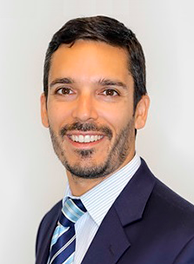
Riccardo holds a Master of Science in Aerospace Engineering and has over twenty years of experience in the aviation industry. He worked as a system engineer at Blue Panorama Airlines and subsequently as a reliability engineer at Alenia Aermacchi (Leonardo) for the advanced military jet trainer M-346 program. He served as the Head of Engineering at Poste Air Cargo before joining ATR Americas in Miami in 2016 as the Customer Support Director. Since June 2019, Riccardo has been the Vice President of Technical Support and Regional Safety Manager at ATR Americas.

Javier Puente is currently the Safety Implementation Officer for the ICAO South American Regional Office. He has previously held positions at national, international, other public and private organizations in the aviation sector.
Javier holds a Master’s degree in Business Administration, a post-graduate degree in Higher Education. He holds a Layer degree, and a Commercial & IFR Pilot Certificates.
He serves on multiple ICAO panels and working groups.
His background includes over 20 years of experience working with States, airlines and other aviation-related Organizations at various levels in Flight Safety, Safety Management, Data Analysis and visualization, Accident Investigation and development and provision of Training.

Renato Achoa brings over 30 years of experience in the aviation industry, marked by his expertise and dedication to quality and operational safety. He holds a degree in Law and an MBA in Aviation Management from Embry-Riddle Aeronautical University, complemented by various professional courses in Quality, Safety, and Security.
Currently, Renato serves as the Director of Quality, Safety and Security, also as a Captain at Azul Linhas Aéreas Brasileiras, where he has been working since 2012. In his role, he has been a central figure in maintaining and improving the company’s safety standards. Under his leadership, Azul Linhas Aéreas Brasileiras achieved its first IOSA certification and has continued to uphold high safety standards ever since.
Additionally, Renato contributes significantly to the aviation industry through his collaboration with BCAST (Brazilian Civil Aviation Safety Team) of ANAC (National Civil Aviation Agency). He currently serves as the vice-president of this group, aiding in the development and implementation of strategies aimed at improving aviation safety in Brazil.
Renato Achoa dedication to safety and quality in aviation, combined with his extensive experience and effective leadership, makes him a respected and influential professional in the Brazilian industry.

Álvaro Pereira, for 21 years worked in the Bolivian flag line Lloyd Aéreo Boliviano (LAB), the first 5 years as a specialist technician in engines and line operation; he later served as a pilot for the Fokker F27 (Line Chief), Boeing B707, B727 (100-200), and the B737 Classic (Flight and Simulator instructor). While working as a mechanic at LAB, he also flew as a DC-3/C-47 pilot on a freight line.
Due to the bankruptcy of LAB, he joined Copa Airlines, being active for the last 18 years, performing the duties of Pilot in the Embraer E-190 (Flight and Simulator Instructor, Fleet Specialist, Technical Pilot) and in the Boeing 737 NG / MAX as line pilot; also, as an Auditor and Accident/Incident Investigator.
Currently, he is in charge of the Flight Safety Department in the Vice Presidency of Operational Safety and Quality Assurance.

Peruvian Air Force Captain ®, MBA and graduate of the Master’s Degree Course in Disaster Risk Management from CAEN, he holds a Diploma in Integrated Management Systems and a Bachelor’s Degree in Aerospace Administrative Sciences.
He is a Specialist in Facilitation, Safety and Security in the Aeronautical Industry, and in Occupational Health and Safety, with extensive experience in the public and private sectors. He also teaches in Peru and abroad.
Mr. Matos has served as an International Civil Aviation Organization (ICAO) Certified Aviation Safety Auditor and Instructor, Lead Auditor for ISO 9001 with IRCA certification, and auditor under ISO-9001, ISO 14001, ISO 45001, ISO 37001, ISO 19600, BASC and ISAGO.
He also holds a DGAC Commercial Pilot’s license and is certified by the DGAC as a Ground Instructor for the Transport of Dangerous Goods. He is currently Corporate Integrated Management Systems and SMS Manager at Talma Servicios Aeroportuarios.

David Zwegers is the Director of Global Safety Strategies at Boeing. In his role, David leads Boeing’s strategies for involvement in collaborative-level safety engagements throughout the World, establishing Boeing’s goals, messaging, and ensuring internal alignment and commitment to support these endeavors. He leads teams in assessing global safety trends, identifying ways for Boeing to bring value to the rest of the ecosystem and championing Boeing’s response as a stakeholder.
Prior to joining Boeing, David was the Regional Safety Director for Airbus, covering the Americas region. In his role, David represented Airbus in all safety matters in the region, aimed to collaboratively improve safety. He was responsible for establishing and maintaining long-term relationships with governmental organizations, customers and industry stakeholders involved in safety in the region.
Prior to this role, David was the Manager of Safety Management Systems at jetBlue Airways and the Director of Aviation Safety at Embry-Riddle Aeronautical University. David earned a Master’s Degree with dual specializations in Operations and Safety, and a Bachelor’s Degree in Aeronautical Science, both from Embry-Riddle Aeronautical University.
He holds an Airline Transport Pilot Certificate with pilot-in-command type ratings in the Airbus A320, Boeing B737, and is fluent in Spanish, Dutch and English.
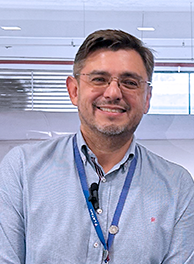
Specialist in Aviation Law at Federal University of ABC.
Bachelor of Aeronautical Sciences at Anhembi Morumbi University.
Since 1996 at LATAM Airlines, he currently divides his time between the position of Director of Flight Operations and Training (COO) at the LATAM Affiliates passengers and cargo, and as Captain of Boeing 787, 777 and 767. He held the role of Senior Director of Safety between 2010 and 2015, where he was responsible for implementing the Flight Monitoring System (FDM/FOQA) and creating the SMS at LATAM Brazil. He led the introduction of the A350 and Boeing 787 models at the Company and is leading the implementation of the APQ training model across the entire Brazilian fleet.
He received the SIPAER Medal of Merit in 2013 and the Santos Dumont Merit Medal, intended for personalities who contributed significantly to the Brazilian Air Force.
Between 2009 and 2013, he actively participated in the IATA RCG (SAM/CAR), being elected vice-president of the group in the 2010-2012 biennium.

Capt. Oscar Barbosa is the Head of Training, EBT Manager, TRI-TRE Airbus A320 / A330, and EBT Manager Avianca at avianca.

Vin Parker is an expert in aviation flight crew training – and is a great friend to the airline training industry, worldwide.
Mr. Parker has over 20 years of experience in crew training, AQP – Instructional Systems Design – Competency-Based Training – and supports a global perspective in modern aviation learning.
Since 1987, Mr. Parker has worked as a crewmember, instructor, executive leadership, and management roles at several regional and major airlines – starting in London with Pan American World Airways, Northwest Airlines, Delta, and is currently with Republic Airways, as Director of Learning & Development, Flight Operations Training.
He is a regular airline training advisor and consultant for NASA, and many airlines around the world. He was as a full-time contract consultant at the FAA Training and Simulator Group (AFS-280) – and was chairman of the RAA AQP Working Group for over 12 years.
Mr. Parker is a Fellow at the Royal Aeronautical Society, has been a professional jazz musician for over 40 years, and holds an executive desk type-rating.

Robert M. Ruiz is an expert in international aviation. He is the Deputy Executive Director for the Flight Standards Service in the U.S. Federal Aviation Administration (FAA). He oversees the development, coordination, and execution of policies, standards, systems, and procedures, public rules, and regulations of all U.S. civil aircraft, including those of U.S. flag carriers and foreign carriers when operating in and over the United States, its territories, and possessions.
He provides leadership to the 5,300 members of the Flight Standards Service organization in its mission to develop, establish and maintain the safest aviation system in the world. Mr. Ruiz is responsible for operations, maintenance, and airworthiness. Flight Standards Service oversight responsibilities include proficiency and certification of air agencies (flight schools/maintenance bases) and of qualified airmen. Flight Standards is comprised of four functional offices: Air Carrier Safety Assurance, General Aviation Safety Assurance, Safety Standards, and Foundational Business.
Previously, Mr. Ruiz was the Director of the Office of Safety Standards in Flight Standards. The office is comprised of eight divisions across the United States consisting of 1,100 aviation safety professionals. The divisions provide policy, guidance, and rules to the entire spectrum of aviation activities to include unmanned aircraft system and powered-lift aircraft. The Safety Standards Office is responsible for the development and implementation of regulations, guidance and directives relating to aircraft operations, aircraft maintenance, airmen, and coordinating international agreements relating to aircraft maintenance and operations of foreign air carriers that operate in the U.S.
During his FAA career, Mr. Ruiz has held various leadership positions: acting Deputy Associate Administrator, Office of Airports; Deputy Assistant Division Manager, Flight Technologies and Procedures Division; and acting, Assistant Division Manager, Flight Standards Training Division.
Prior to joining the FAA, Mr. Ruiz worked for a major U.S. commercial carrier as a senior flight operations technical analyst and as a senior accident investigator and flight safety liaison for Latin America and the Caribbean.
Mr. Ruiz holds an MBA from Embry-Riddle Aeronautical University and an undergraduate degree in aerospace engineering from the University of Maryland.
Mr. Ruiz holds a multi/single-engine commercial instrument pilot rating and a skydiving license. He has received familiarization training in Level D, flight simulators for Boeing 737, 757, 767, 777 and Airbus 330 aircraft.

Dr. Giovanetti is currently the Director, Medical Specialties Division at Headquarters, FAA. In that position, she is responsible for developing aerospace medicine policies and procedures, overseeing the process of medical appeals to the Federal Air Surgeon, providing oversight of FAA employee drug and alcohol testing, managing the FAA mental health professional service, supporting the Office of the Chief Counsel Enforcement Division, responding to National Transportation Safety Board recommendations, and providing aerospace medicine expertise and advice to the Federal Air Surgeon.
Dr. Giovanetti joined the FAA in August 2012, as manager of the Medical Officer Branch in Oklahoma City. She retired from the US Air Force in 2007 after a 27-year career as a flight surgeon, staff officer, and commander. She held numerous positions in aeromedical standards to include the Tactical Air Command Surgeon’s Office, Air Force Surgeon General’s Office and the US Air Force Academy. She was Commander of the USAF Medical Center at Wright-Patterson AFB and Vice Wing Commander of the 311th Human Systems Wing, host to the USAF School of Aerospace Medicine, just prior to her retirement. She has logged nearly 1,000 flying hours as a flight surgeon in military aircraft, and is a licensed private pilot.
She holds a doctorate in osteopathic medicine from Des Moines University; master’s degrees in Preventive Medicine/Environmental Health from the University of Iowa, and National Security Strategy from the National War College; and a bachelor’s degree in English from Stanford University. She completed a residency in Aerospace Medicine and is a Diplomate of the American Board of Preventive Medicine in Aerospace Medicine and Occupational Medicine. She also completed a residency in Physical Medicine and Rehabilitation and is a Diplomate of the American Board of Physical Medicine and Rehabilitation. She is a Fellow of the Aerospace Medical Association.

Mr. Angel Luna is the Government Vice Chair of the Pan American Regional Aviation Safety Team (PA-RAST), where, as the representative of the United States Commercial Aviation Safety Team (CAST) to the PA-RAST he shares safety data and safety enhancement information with representatives of the region. He is also the team leader of the PA-RAST Controlled Flight into Terrain (CFIT) working group where he has successfully coordinated the development and publication of a RASG-PA Safety Advisory (RSA) and RASG-PA Safety Issue Alert (RSIA) to mitigate the risk of CFIT in Pan America.
Mr. Luna has worked for the Federal Aviation Administration for nearly 17 years and currently serves as an Operational Safety Analyst for CAST by leveraging the Aviation Safety Information Analysis and Sharing system known as ASIAS. Mr. Luna has extensive experience in aviation safety having worked as a safety engineer and a manager in the Air Traffic Safety Management Systems office.

Retired officer of the Peruvian Air Force in the Intelligence specialty and Security, in the rank of Major with 15 years of effective service and 5 years of training professional
Bachelor of Science in Aerospace Administration specialized in topic of comprehensive security of facilities, airports, aerodromes and intelligence, with extensive experience in preparation, execution and supervision of Safety and Security plans Contingencies, Strategic and Operational Planning, Information Analysis and leading work teams.
Graduated from the Masters of Administration and Public Management.

GOL´S Safety & Flight Operations Senior Advisor and Chairman of the Safety & Operations Committee.
Head of eVTOL implementation project and Joint Working Group with Avolon and Vertical Aerospace.
Former Vice President and Chief Operating Officer (COO) from February 2014 until March 2019.
At GOL Group since 2004, began as Boeing 737-800 NG Flight Instructor, being responsible for Line Operations Safety Audit (LOSA) Program (2006), IOSA certification (2008) and Safety Management Systems implementation (2010).
Still current as a B737 NG captain, experience of 43 years in Airlines, accumulated around 20.000 hours of flight time, in narrow and wide bodies’ airliners.
Bachelor degree in International Affairs, Catholic University of São Paulo, 2005.
Aircraft Accidents Investigator by CENIPA – Brasil, 2006.
IATA Operations Committee member since 2010, Vice-Chairman until June 2019.
Former Chairman of IATA´s Safety & Fight Operations B737 MAX Task Force.

Allyson began her career supporting Boeing programs at Fokker Elmo in the Netherlands and China, her tenure at Rockwell Collins in Montreal further honed her skills, setting the stage for her transition to a simulator start-up in the Netherlands, providing a pathway to commercial aviation where her passion for aviation training flourished.
In 2020, she became an aviation consultant, lending half of her time to the Halldale group; she works with airline training leaders worldwide, addressing risks and trends and always striving to improve safety. She manages the Airline and ATO Heads of Training meetings, bringing industry stakeholders together and working in close collaboration with the European Union Aviation Safety Agency (EASA) and the European Aviation Training Policy Group (ATPG). She was instrumental in the launch of the Latin American and Caribbean ATPG as well as Women in Aviation Training (WiAT) in the autumn of 2023 and is currently leading the expansion of aviation training leaders discussions into Dubai in the summer of ’24.
As the founder of Aviate in Calm/Rooted in Calm, Allyson embodies her commitment to human-centered design. She helps organizations translate mandated wellbeing from a box-ticking activity to tangible wellbeing outcomes, reducing employee leave and burnout while fostering a positive work environment. She helps private clients cultivate healthy happiness through simple solutions that complement their busy international lives.
Allyson’s academic pursuits underscore her commitment to continuous learning and professional development. Currently pursuing a Master’s in Aviation Human Factors at the University of Coventry. Beyond her professional achievements, she is a mentor and an active member of the Royal Aeronautical Society and the European Association for Aviation Psychology. Her certifications as an NLP Master Practitioner, Emotional Intelligence, and Motivational Coach reflect her dedication to empowering others to reach their full potential.

Aeronautical Engineer with a Master’s Degree in Aircraft Maintenance and Production and a Master’s Degree in Business Administration (M.B.A.), specialist with more than 10 years leading operational safety management teams in passenger airlines, specialist in technical reliability and continued airworthiness.

Waleska Fortini has been the Emergency Response Manager for LATAM Airlines Group since 2010.
She joined the company in 2002 and has held various positions in the Corporate Safety Department.
Her most notable safety achievement was the implementation of the Aviation Quality System – AQD for TAM in 2006. In 2007, after experiencing the TAM 3054 accident in Sao Paulo (199 fatalities) as Safety Coordinator, she was invited to join the company as Emergency Response Manager in 2010. It was one of the longest family emergency management in aviation history. Since then, she has been in charge of ERP for LATAM Airlines Group, implementing the process for all subsidiaries in the region.
In addition to implementing corporate ERP, LATAM has more than 140 local plans and over 5,000 employees trained as CARE TEAM members. Codeshare agreements and coordination with external organizations, including Family Assistance Associations, are some of the aspects included in the development of relationships that need to be built before a critical situation occurs.
Waleska has served as ER Manager for the Star Alliance and Oneworld alliances. Currently serves on the Emergency Response Task Force Steering Group for IATA as the American Airlines representative, and leads the Emergency Response Group for ALTA.

Electronics Engineer with postgraduate degrees in Communication Networks & Cybersecurity, Aviation Accident Investigation & Prevention, Management and Production Administration. Black Belt in Six Sigma. Currently, Aviation Safety Specialist and Innovator at Embraer SA, Brazil, where he worked for seventeen years and participated in about 250 investigations, including commercial, executive and defense aviation. Member of international and national safety improvement committees. Author of several publications related to data analysis, statistics and forecasting, event animation and crew training. Professor of subjects related to aviation safety, safety culture, engineering and universal design. Also develops innovative safety focused products for the company’s portfolio.
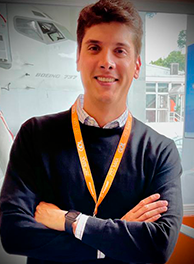
Gabriel Casella is the Safety Manager at GOL and has been with the organization since 2010 as a B737 copilot. He joined GOL’s Operational Safety Department in 2011, where he has worked in various sectors including the implementation of the AQD Portal, investigation of aeronautical accidents/incidents, CRM facilitator, ground training, among others.
He holds degrees in Aeronautical Sciences and Business Administration, and is also an accredited investigator by CENIPA and the Southern California Safety Institute. Additionally, he is a member of the IATA Safety Group representing GOL and Latin America in the development and issuance of Safety Recommendations for the industry.
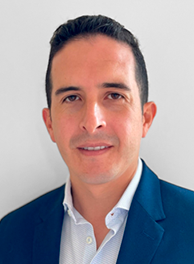
Santiago has been part of Airbus since June 2019 where he assists and coordinates different safety initiatives that impact Airbus customers and collaborates with other industry stakeholders to improve the safety record of the region. Before that, he served as Head of Tech Ops and Safety for the Latin American and Caribbean Air Transport Association (ALTA, by its Spanish acronym) from 2006 to 2019. At ALTA, Santiago developed solid skills addressing the different issues affecting the airline industry in the region, from Maintenance & Engineering, Industry Affairs, and Aviation Safety.
He is an active member of the ICAO Regional Aviation Safety Group – Pan America (RASG-PA) where he’s currently the Co-Chairman for the Regional Aviation Safety Team (PA-RAST) in representation of the Industry. He is the former Chairman of the ALTA Pan-American Safety Summit, a position he held from 2011 to 2018. Santiago is the Chairman of the Aviation Committee for Miami’s Beacon Council. He’s also a Board Member and one of the founders of ICARO Aviator’s Club in South Florida.
Santiago comes from a family of aviators where he has been involved from a young age in his country of origin, Ecuador. He holds a Private Pilot certificate, a Bachelors in Business Administration focused on Airline Management from Embry Riddle Aeronautical University (ERAU) and he holds a Masters in Travel and Tourism from Florida International University (FIU). In 2017 he became a Certified Professional Coach from the Institute of Professional Excellence in Coaching (IPEC).

Dirceu began his aeronautical career at VASP in 1994, where he worked for 5 years in the Maintenance Engineering area on the Boeing 737-200, 737-300, MD11, Airbus A300 and A310 models. He joined Embraer in 1999 as an Aeronautical Maintenance Engineer working with Embraer models and since 2007, he has worked as a Safety Investigator providing support to the Brazilian Investigation Authority CENIPA as an adviser during investigations and to operators in Asia-Pacific and Latin America on safety related issues.
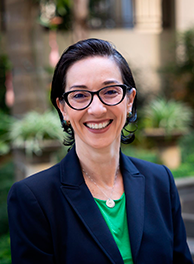
With over 20 years of experience as a Business Continuity and Crisis Management professional, certified by the Massachusetts Institute of Technology (MIT), by the Disaster Recovery Institute International-DRI as a CBCP (Certified Business Continuity Professional) and Emergency Planning and Response for Airlines by IATA.
She began her career in the 1990s as a Flight Attendant, later becoming a Cabin Chief Purser and Examiner. She also dedicated herself to Operational Safety and embarked on her journey into Emergency Response.
Her perspective underwent a transformation when she actively participated in managing the GOL 1907 flight accident in 2006.
She has worked in national and international Airlines, Executive Aviation, the Hospital Industry, Financial Institutions, and Consultancy. Currently, she is a member of the IATA Emergency Response Planning Task Force and the ALTA Emergency Response Group and is an international speaker.
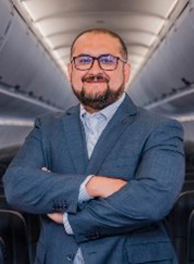
David Galvez, a civil engineer by profession, is currently Senior Manager of Operational Safety and Internal Control at SKY Airline, a position he has held for 7 years.
During his professional career, he has held different positions for more than 18 years in the airline industry, today leading the design and implementation of SKY Airline’s comprehensive risk management model with a focus on operational risk and safety.
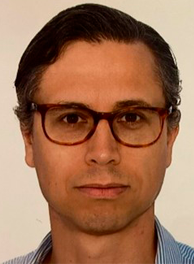
Francisco Arenas Alvariño is a Spanish national. He started his aviation career in 1999. He has been flying commercially since 2001 on the SA226/227 Metroliner and ATR42/72 for a cargo company, long haul operation A330 and A340, and low-cost carrier flying A319/320 as a Captain. He obtained a degree in business management with a master’s in aviation business from the Universidad Autonoma de Madrid. Francisco joined the Agency in 2014, acting as the project manager for the following regulatory developments: Evidence-based training (RMT.0599), Fuel schemes (RMT.0573), all-weather operations (RMT.0379) and more recently on RMT.0739 on “extended minimum crew operations”.
Currently, Francisco is a Project Manager at European Union Aviation Safety Agency (EASA).
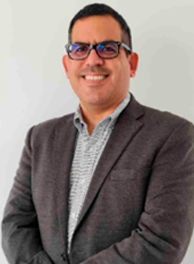
Lawyer from the Pontificia Universidad Católica del Perú.
Carlos completed a Master’s Degree in Aviation Business Administration at the Autonomous University of Madrid. He has developed his professional career in the tourism and private aeronautical sector for more than twenty-one years. Likewise, he has six years of experience in the Civil Aviation Authority of Peru.
His practice is focused on legal and regulatory matters in the air transport sector.
He currently works as General Manager of the Asociación de Empresas de Transporte Aéreo Internacional (AETAI), which is the association that brings together almost all international operators in Peru.
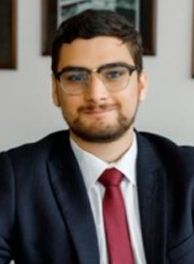
Eduardo Cristelo is a Brazilian lawyer specialized in aviation law and deeply passionate about aviation industry.
Eduardo is currently pursuing a Master’s degree in administrative law at Pontifícia Universidad Católica de São Paulo, focusing on aviation law. He has been actively involved in aviation law and industry, gaining extensive experience in various aspects of the field.
His expertise spans across regulatory litigation and consultancy, aircraft and engine contracts, cross-border contracts applied to aircrafts and engines, agreements between private parties and airport concessionaires, structuring operations for fractional ownership programs, air taxi, and private aviation. Eduardo has worked advising international airlines, private operators, air taxi services, fractional aircraft ownership programs, drone operators, eVTOL operators, aircraft and engine lessors, and banks.
Eduardo is highly engaged in industry discussions, staying abreast of market trends, both nationally and internationally. He is member of the Air Law Committee at the Brazilian Bar Association (OAB/SP), the Brazilian Air Law Institute (IBAER), and the Air Law Committee at the Colombian Bar Association (C.A.D.A).
Eduardo Cristelo is a dedicated professional with a profound interest in advancing the field of aviation law, contributing actively to legal discourse and staying at the forefront of industry developments.

With more than 20 years of experience in large companies in the service sector, Medeiros has built a diverse and successful career. He started as an auditor at Deloitte, then worked at Brazil Hospitality Group (BHG), where he played a crucial role that positioned the company as the third largest in the market. He later assumed the position of CEO at Aeróleo Táxi Aéreo S.A., now Bristow Brazil, a key player in the Offshore Helicopter Industry in Brazil. He is currently CEO at Helipark Manutenção Aeronáutica, a company that is a global reference in helicopter maintenance and retrofit services and recognized for its high level of commitment to flight safety. With a solid experience in leadership and also diversified in different niches of the helicopter industry, Medeiros is today one of the main references in the area of air mobility.
Graduated in Accounting Sciences, with an MBA in Business Management and a master’s degree in Economics, Medeiros has experience in mergers and acquisitions and expertise in strategic management, team leadership and implementation of governance practices that highlight him as a capable and respected executive in the Brazilian business scenario.

Aeronautical Engineer, ISO 9001:2015 lead auditor, IATA Aviation Lead Auditor, Commercial Pilot N°4230 (DGAC Peru) with multi-engine and instrument rating and ICAO English level 4. Aircraft Maintenance Technician License DGAC A&P (Peru) and FAA A&P (USA). Solid knowledge of engineering and planning processes, flight operations, reliability, aircraft certification, safety and quality assurance System. Characterized by proactivity, assertive communication, capacity for analysis and quick learning, with high ethical values, ease of working under pressure and in a team, oriented to achieve company goals with effective leadership.

As part of the Boeing CBTA team, Frederik supports operations and authorities in the safe and effective implementation of CBTA and EBT.
He has a background in leading applied research programs and consulting engagements in the field of aviation safety, human factors, aviation psychology and flight training.
Through this he has contributed to the development and roll-out of CBTA and EBT, particularly in the area of competency assessment methods, instructor standardization and program performance.
Frederik is a contributor to several EASA rulemaking tasks including .0599 (EBT), .0196 (FSTD Characteristics Signatures) and .0194 (CBTA for part FCL).

Jean-Michel leads AMFTA as Founder & President, drawing upon 30 years experience in aviation and flight training. In 2019, he founded AMFTA as part of his vision to improve flight safety via the creation of a harmonised flight training level worldwide (Airbus Flight Training reference).
Previously, Jean-Michel was Head of Flight Training Worldwide & VP Training and Flight Ops, for major jet and turboprop aircraft manufacturers (notably Airbus, ATR…) and has held executive positions including CEO & Member of Executive Board for different aircraft and simulator companies. During this time he was instrumental in developing training technologies whilst growing business revenue through innovative solutions, all the while focusing on enhancing flight safety. His wide airline experience also extends to the start-up and restructuring of several airlines.
Jean-Michel graduated at Air France and the French Civil Aviation University (ENAC) and began his career working for a major European airline, before joining the French Aviation Authorities to manage ab initio & advanced training. Throughout his career, Jean-Michel has flown for many different airlines and still flies on a regular basis. He is current on the A320/A330/A350 & A380 and is still acting as Instructor and Examiner on both Airbus aircraft and light aircraft.

Miguel Rosas Montes is a Mexican pilot with more than 18 years of experience in the commercial aviation industry. He began his career as a commercial pilot at the National Airline (Aviacsa), continuing his career at Interjet, Mexicana de Aviación and finally it was at the company Viva Aerobus where he quickly rose to roles of greater responsibility. With a strong flight background and impeccable safety record, he has flown a variety of aircraft, from 737s, CRJs and A320s. His passion for aviation is reflected in his dedication to operational excellence and his commitment to passenger safety. Miguel currently serves as Coordinator of simulator instructors and flight advisors, leading teams and ensuring safe and efficient flights in the Pilot Training area of Viva Aerobus.

Gerardo Hueto is Assistant Director, Safety at the IATA Americas Office in Miami. He leads the development and implementation of regional Safety Enhancement initiatives for air carriers, States, and service providers in the region, leveraging information from the Global Aviation Data Management (GADM) program and Aviation Safety Information and Sharing System (ASIAS) to focus on top regional risks. He also leads the effort to proactively identify emerging or future safety risks and evaluate possible risk management initiatives. Gerardo currently serves as Industry Co-Chair of the ICAO Regional Aviation Safety Group – Pan America (RASG-PA).
Prior to joining IATA, Gerardo Hueto was a member of the FAA Aviation Safety Organization, in the Office of Accident Investigation and Prevention. He worked with the Commercial Aviation Safety Team (CAST) and the Aviation Safety Information and Sharing System (ASIAS) to develop data driven safety enhancements for the National Aviation System (NAS) of the United States. Gerardo also served as a member of the National Academy of Sciences Aviation Safety Assurance Committee, which developed the In-time Aviation Safety Assurance concept for the US National Airspace System.
Gerardo was Chief Engineer, Aviation System Safety at Boeing Commercial Airplanes. He coordinated Boeing’s Aviation Safety initiatives with Regulators and Industry in the United States and worldwide. Gerardo represented Boeing at the US Commercial Aviation Safety Team (CAST) and the Steering Committees of ICAO’s regional safety initiatives in Asia and the Americas.
Gerardo served as Industry Co-Chair for the following organizations:
-Joint Implementation Measuring and Data Analysis Team (JIMDAT) for the US FAA CAST.
-Aviation Team Looking Ahead at Safety (ATLAS) for the US FAA CAST.
-ICAO Asia Pacific Aviation Safety Team (APRAST) for the ICAO Asia Pacific Regional Aviation Safety Group.
Gerardo is an Aeronautical Engineer and has a master’s in management. Prior to working at Boeing, he was Director of Fleet Safety and Quality Assurance at Alaska Airlines. In addition, Gerardo has managed Engineering groups at Bombardier and McDonnell Douglas, worked as a performance engineer, and participated in NTSB accident investigations. Gerardo is also an Aviation Safety Management instructor at the University of Southern California Aviation Safety and Security Program.

Mark has been involved on the technical side of the Airline Industry for over 40 years. His education and technical skills were put into motion after graduating with a Bachelor of Science in Aerospace Engineering at the Minneapolis campus of the University of Minnesota.
He began his professional career with Republic Airlines as a Systems Engineer and then has gone on to hold several technical management positions within the Maintenance side of the Airline including overall Reliability, Powerplant Engineering and Chief Engineer at Northwest Airlines.
Finding the best performance in a highly complex organization is one of Mark’s key interests. Pushing the envelope for Safety has been his main interest since 2005 when he has held safety leadership roles at major U.S. airlines, regional airlines and the Washington DC based Airlines for America. Mark has been with the Flight Safety Foundation for the past 9 years working with various projects to provide advice to the worlds efforts on building safety intelligence that helps redefine what’s possible through risk management. He has also been involved with the forming content for the Foundation’s seminars and conferences through its advisory committees.
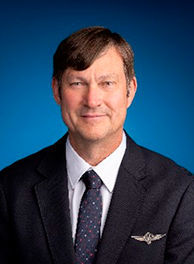
Captain John DeLeeuw is currently the Managing Director Safety and Efficiency for American Airlines. He leads a team of over 60+ team members who participate in the Safety Assurance programs such as Flight Operations Quality Assurance (FOQA), Aviation Safety Action Program (ASAP), Line Operations Safety Audit (LOSA), and safety investigations as integral elements within the Safety Management System. He plans and manages the Corporate Safety Department’s effort to support the commitment to be the world leader in airline safety. He interfaces with the airlines’ departments to proactively identify and develop strategies and practices to prevent accidents and incidents.
John has amassed a total of over 19,000+ accident and incident free flight hours in his flying career. He is a current and qualified Captain on the 787 Dreamliner for American Airlines.

Capt. Rastrello is the Director of Safety at LATAM Airlines Group, and extensively experienced airplane pilot, Captain and instructor A320 Family, including experience in the A330 and Fokker 100 fleet.
Master in Aeronautical and Mechanical Engineering, Instituto Tecnológico de Aeronáutica – ITA.
Post-graduated in Aviation Safety and Continuing Airworthiness, Instituto Tecnológico de Aeronáutica – ITA.
Bachelor’s in Civil Aviation, Universidade Anhembi Morumbi, and graduated in Civil Engineering at “Escola de Engenharia Mauá”.
Accident Investigator, CENIPA.
He is also the Chairman of Regional Coordinating Group – Latin America and Caribbean (LATAM/CAR RCG -IATA), Chairperson of ALTA-IATA Safety Team, responsible for exchanging best practices between operators and authorities to improve safety ratings in the region, and extensively experienced Professor at Anhembi Morumbi University (graduation and post-graduation).
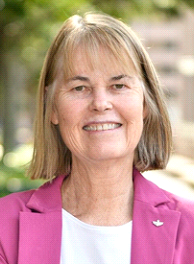
United Airlines Capt. Wendy Morse serves as ALPA’s first vice president and national safety coordinator. She is the first woman to serve as an ALPA national officer and brings more than 35 years of union experience to her role. She exemplifies a “see it, be it” leadership role model for girls and young women entering aviation—particularly the piloting profession, as women make up only 5 percent of today’s airline pilot population.
As national safety coordinator, Capt. Morse oversees the Association’s Air Safety Organization (ASO), the world’s largest nongovernmental aviation safety organization. With a team of more than 425 of the union’s pilot representatives, she leads the ASO, which operates the union’s safety, security, pilot assistance, and jumpseat programs. The ASO also advocates to advance and protect airline pilots’ aviation interests on Capitol and Parliament Hills as well as throughout the world.
Over her term as first vice president, the current aviation safety and security landscape could change systemically, as regulators in the United States and around the globe define aviation standards for the new era. These opportunities include how airline pilots safely share the airspace with new entrants, such as spacecraft, drones, and electric vertical lift operators; how operators design and regulators certify new aircraft and pilot training programs; and how governments invest in aviation’s aging infrastructure, to name a few.
The union’s Board of Directors elected Capt. Morse on Oct. 19, 2022, and she began her four-year term on Jan. 1, 2023. Based in Chicago, Ill., she is a Boeing 787 pilot and previously served United pilots in a multitude of leadership roles, including as the Master Executive Council chair, a member of the United Airlines Board of Directors, a local council officer, and a variety of committee posts.
Under her leadership and Negotiating Committee participation, the United pilots navigated various defining moments, from the industry-leading United pilot contract in 2000 and the bankruptcy-era negotiations that followed post 9/11 to merger talks with Continental Airlines, also during contract negotiations. The news media has described Capt. Morse as the “consummate insider with a detailed knowledge of the labor issues separating the union and management, and the political skills to broker deals.”
Prior to United, Capt. Morse was a pilot for Precision Airlines and served as a corporate pilot and flight instructor. She earned a bachelor of professional studies in commercial aviation degree from Memphis State University. She resides in South Elgin, Ill., with her husband.
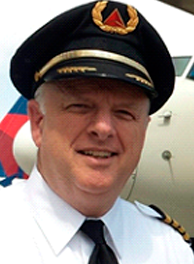
Captain Don Wykoff, recently retired from Delta Air Lines following a 34-year career. During his tenure with Delta, he served as the President of the International Federation of Air Line Pilots’ Associations (IFALPA), representing over 100,000 airline pilots from over 100 Member Associations around the world.
In addition to his work at IFALPA, Don held numerous leadership positions in his home association, the Air Line Pilots Association, International (ALPA). As the chairman of ALPA’s Flight Time/Duty Time Committee he was responsible for the development of scheduling guidelines and best practices for the mitigation of fatigue among pilots. During this tenure he served as co-chair of the FAA’s Aviation Rulemaking Committee charged with a complete overhaul of the FAA’s Flight and Duty regulations, resulting in FAR 117. Additionally, he served on Delta’s Fatigue Safety Action Group (FSAG) and participated in the development of Delta’s Fatigue Risk Management system (FRMS).
Hired by Delta in June 1988, Don has flown the B-737/757/767 and MD-88 aircraft during his career. He is a retired U.S. Air Force fighter pilot and graduated in 1979 from the University of Cincinnati with a Bachelor of Business Administration degree majoring in finance.
Don resides in Cincinnati, Ohio with his wife Susan.

Dr. Barbara Holder is a Presidential Fellow and Associate Professor at Embry-Riddle Aeronautical University. She is responsible for growing the applied aviation human factors research capability of the university and teaches graduate level courses in aviation human factors and human-centered design. Before joining ERAU, she worked at Honeywell Aerospace as a Technical Fellow, and prior to that, at Boeing as Associate Technical Fellow and Lead Scientist of Boeing’s Flight Deck Concept Center. Dr. Holder was awarded ten U.S. patents for her innovations in training, procedures, and flight deck design.
Dr. Holder has over 25 years of experience researching aviation human factors and creating novel human-technology interactions. In her most recent research, she successfully redesigned go-around procedures to direct pilot attention to appropriate flight path parameters to reduce the risk of Loss of Control In-flight during the go-around maneuver. She is currently investigating novel ways to evaluate pilot cognitive performance while performing flight path management technical and non-technical tasks. Another project is investigating tactical and strategic flight deck task management practices related to flight path monitoring, management of flight deck system failures and malfunctions, and flight crew response to air traffic control interventions which affect flight path management.
Dr. Holder serves on several industry committees and currently chairs the Subcommittee on Human Factors for the Federal Aviation Administration’s (FAA) Research, Engineering, and Development Advisory Committee. This subcommittee advises the FAA administrator on research needs and emerging trends. She is also the Stabilized Approach Recommendation Subgroup Chair to the Flight Path Management Working Group under the Air Carrier Training Aviation Rulemaking Committee. This working group provides recommendations to the FAA on Flight Path Management policy, procedures, and training.
Dr. Holder is a Fellow of the Royal Aeronautical Society. She completed her B.A in Social Ecology at the University of California, Irvine and completed her M.S. and Ph.D. in Cognitive Science at the University of California, San Diego, under the guidance of Professor Edwin Hutchins, a MacArthur Fellow. Dr. Holder holds a Private Pilot’s License and enjoys flying aerobatics with her husband in their Extra 300. She also enjoys sea kayaking and playing pickleball.
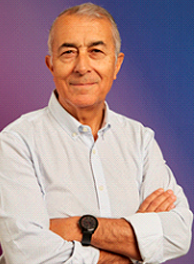
Mr. Enrique Rosende Alba is 70 years old. He is the Safety & Security Corporate Director for LATAM Airlines Group since 2009.
Before entering Lan, he works in the Chilean Air Force for 37 years. He served as Head of the Education Division and Director General of Civil Aviation in Chile from 2002 to 2006. During the year 2007 -2008, he was the Vice President of the Latin American Aviation Commission.
He graduated as Aeronautical Systems Engineer at the Air War College. Mr. Rosende holds degrees in Political Philosophy, Human Resources Administration, Military Sciences and Administration and Planning of Airport Systems.

Pedro Algorta is one of the 16 survivors of the plane crash in the Andes in 1972.
After the accident Pedro moved to Buenos Aires, where he studied Economics and then completed an MBA at Stanford University, California, where he graduated in 1982.
He has had a successful business career, having held top-level positions in companies such as Cervecería Quilmes, Peñaflor, Campofrío and Argentine Strains. During his business career, Pedro did not talk about his experience in the Andes.
Now Pedro meets the Andes again and shares with those who want to listen to his testimony about what he experienced in the mountain and its teachings for corporate and personal life.

Since 2017-18, Michel Roy has been responsible for the Transport Canada Civil Aviation (TCCA) Strategic Safety Risk Assessment Program that was created to modernize TCCAs system-level safety risk management approach and enhance its ability to proactively assess and manage strategic risks to the aviation system, to help focus resources on areas of greatest risk and support management of Canada’s aviation safety performance overall. He holds a Bachelor’s degree (2001) in Business Administration (Management specialization) from the École des Hautes Études Commerciales (HEC) in Montreal. He has completed flight ground school as well as various Safety Risk Management courses provided by ICAO, IATA, CGE (Bowtie) and TCCA. His responsibilities at TCCA include establishing the Strategic Safety Risk Management (SSRM) Framework, methodologies, and tools to enhance integrated analysis and proactive management of key safety concerns affecting Canada’s civil aviation transportation system.
As part of this work, Mike has facilitated the development and implementation of the Industry/Regulator Collaborative Analysis Group (CAG) focused on Airline Operations in Canada. The CAG’s goal is to work jointly with industry to identify, prioritize and monitor key safety risks so as to enhance proactive management of key safety concerns affecting Canada’s civil aviation transportation system through regulatory and non-regulatory solutions by government and industry stakeholders.
He is also Canada’s representative on the International Civil Aviation Organization (ICAO) Global Aviation Safety Plan Study Group (GASP-SG) and assumes the responsibilities of State Co-Chair of the ICAO Regional Aviation Safety Group’s (RASG) Pan-America-Regional Aviation Safety Team (PA-RAST).

Mónica Gómez Caniella, Accredited Expert Psychologist in Aviation Psychology, President of the Latin American Union of Aeronautical Psychology Associations, and Aeronautical Psychologist from Gulf Helicopters Company, Doha, Qatar.
Clinical Director. Peer Support Program. Eurania Services. Barcelona, SPAIN.
Team member. Zentra2 Consultancy, Málaga, SPAIN. Kenyon team member. Instructor SMS HHFF CRM.
She has 27 years of international experience, applying psychology in clinical, labor, aeronautical and crisis fields.
International consultant, performing situational diagnosis, creating, incorporating, evaluating and follow-up of programs and projects. Trainer, designing sized fit teaching courses. Assisting individuals and groups of affected communities and responders in emergencies and disasters.
Developing human talent and collaborating in building resilience and mental wellbeing. University teacher and private therapist.

Capt. Chris Collins is the Director of Flight Safety at Delta Air Lines, where he coordinates a team of safety professionals that oversee employee safety reporting (ASAP), flight data monitoring (FOQA), operational safety investigations (accidents/incidents), safety management system (SMS), pilot safety applications, and analytics through a data and decision science team. He also participates as a member of the IATA Safety Group and the Flight Safety Foundation International Advisory Committee. Previously Chris was the Chief Pilot of Flight Operations Safety Programs which included the opportunity to work in fatigue risk management (FRM), safety risk assessment and management, and the pilot safety reporting program.
Chris is an Airbus A320 Captain with over 20 years of professional flight experience. Since joining Delta as a line pilot in 2007, he has held numerous leadership positions in the chief pilot’s office, flight standards, fatigue management, and served as strategic manager supporting the Vice Presidents of Flight Operations. Chris is a graduate of Western Michigan University’s Aviation Program, and before joining Delta, spent time instructing undergraduate aviation students in flight, meteorology, and aviation law.
Chris lives with his family in Atlanta, Georgia, USA.
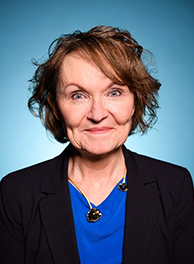
Bobbi Wells is Vice President Safety Systems, Efficiency and Compliance where she oversees American’s safety systems with a focus on managing risk through design, science, and innovation. She serves as Director of Safety on our Federal Aviation Administration (FAA) Operating Certificate. She also serves as the Chair for the Flight Safety Foundation Board of Governors, serves on the Industry Advisory Board for the Embry-Riddle Aeronautical University Center for Aviation and Aerospace Safety, and is past-President for International Aviation Women Association.
Previously, Bobbi served as Vice President of Safety and Airworthiness in Air Operations at FedEx where she led the carrier’s safety, airworthiness and regulatory compliance through safety risk management, analytics, auditing, and culture development. In her more than 25-year career at FedEx, she led the airline’s business planning, strategy, and process improvement; logistic operations, communications, the worldwide air logistics system and financial processes. Bobbi also received her FAA license as a dispatcher.
Prior to FedEx, Bobbi served in the U.S. Army as a transportation and logistics officer for more than 10
years, where she led the logistical support for 30,000 troops based in Germany.
Bobbi spends a lot of her time finding ways to support, develop and advocate on behalf of women in aviation. She formerly served on the Department of transportation’s Women in Aviation Advisory Board and as a member of the International Air Transport Association’s Operations Advisory Council. She is also a member of the MITRE Aviation Advisory Committee and FAA Commercial Aviation Safety Team.
She earned a Bachelor of Arts in psychology from the University of Notre Dame and a Master of Business Administration from the University of Memphis.
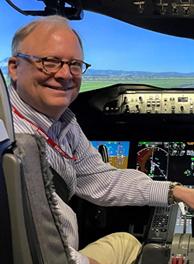
Robert L. Sumwalt is Executive Director of the Boeing Center for Aviation and Aerospace Safety at Embry-Riddle Aeronautical University, where he also serves as Distinguished Fellow in Aviation Safety. In that role, he oversees research and development of the Center, and sets the overall strategy. He also serves as aviation safety analyst for CBS News.
Previously, Sumwalt served as Chairman, Vice Chairman, and Member of the U.S. National Transportation Safety Board (NTSB), where he served from August 2006 to June 2021.
Sumwalt was a pilot for 32 years, including 24 years with a major US-based international airline.
In recognition of his contributions to the aviation industry, in September 2021, Sumwalt was awarded the Flight Safety Foundation – Boeing Aviation Safety Lifetime Achievement Award. He also received the Flight Safety Foundation’s Laura Taber Barbour Award in 2003 and ALPA’s Air Safety Award in 2005. He is an inductee into the South Carolina Aviation Hall of Fame.